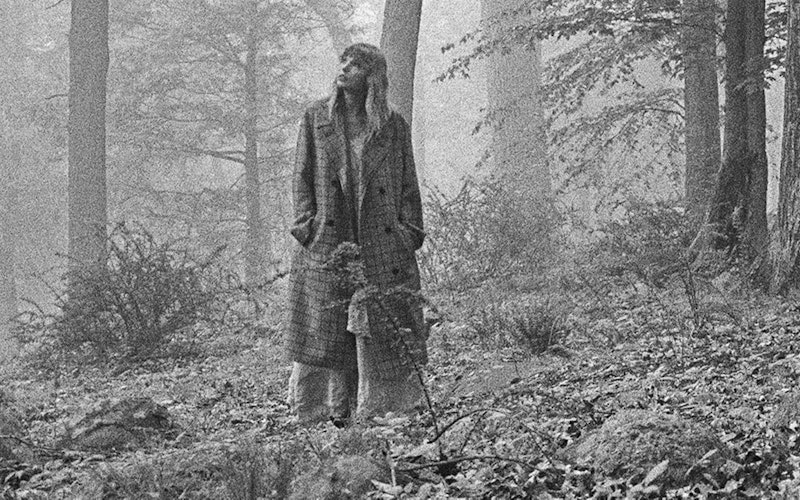
Music
Taylor Swift’s Isolation Hymns
With the release of her eighth studio album, folklore, Taylor Swift wants the world to know that she’s more than just a pop princess. What folklore lacks in power ballads and dance tracks, it makes up for in raw emotion and acoustic musicality. It’s both harkening back to Swift’s country roots and introducing a new version of herself, a reflection on life lessons during a time of isolation due to COVID-19.
folklore is Swift’s first album to be labeled as “Alternative,” fitting in with the likes of HAIM and Vampire Weekend. Alternative encompasses a wide breadth of styles, allowing space to create and explore new sounds. Swift’s album features collaborations with indie artists Aaron Dessner from The National, Bon Iver’s Justin Vernon, and Jack Antonoff. Swift has previously worked with Antonoff, and the influence of his style can be heard on folklore—both “The Archer,” from her previous album, and folklore’s “my tears ricochet” rely heavily on vocal echoes, creating the sensation of more than one voice. Perhaps the most pop-forward song, “august,” is reminiscent of her hit single from 1989, “Out of the Woods;” both feature catchy beats and invitations to sing along. While folklore certainly presents the same Taylor Swift the world has come to know, she feels more authentic. The album departs not only from her pop sensibility, but also from her typical influences, answering the question: what happens when we’re forced to be alone with ourselves?
In her Instagram post announcing the album, Swift wrote: “In isolation my imagination has run wild and this album is the result, a collection of songs and stories that flowed like a stream of consciousness.” folklore is a retrospective exploration of deep, uncomfortable feelings that arise during isolation. Swift’s voice is raw and emotional, accompanied by singular piano notes or softer guitar chords. The album feels moody, with a quiet sadness permeating throughout. “epiphany” is reminiscent of Imogen Heap’s “Hide and Seek” and Sufjan Stevens’ signature breathy sound, providing an almost hymnal experience. “betty,” with its harmonica and catchy folk melody, brings to mind songs sung around the campfire, creating a communal storytelling experience. At the same time, the lack of a large backing band creates the illusion of being alone—it reminds us of the isolated world in which we’re currently living.
Despite this loneliness, Swift reminds us that we can still find comfort. For her, it's being wrapped in an old cardigan. On the song of that name, she sings, “And when I felt like I was an old cardigan / under someone's bed / you put me on and said I was your favorite." For Christians, this can serve as a reminder of God's love, wrapped around us during times of deep sadness. When we feel left out in the cold, exiled, or alone, we can turn to God for warmth, grace, and love.
TC Podcast: Quarantine Hymns (Taylor Swift’s folklore, Billie Eilish’s “my future”)
In its distress, however, folklore finds harmony with the book of Exodus and the story of Moses. The story begins with God’s call for Moses to release the Israelites from bondage in Egypt. When Pharoah refuses to listen, Moses returns to God, crying out: “Why, Lord, why have you brought trouble on this people?” This feeling of helplessness and isolation is echoed by Swift in “my tears ricochet,” when she sings: “even on my worst day, did I deserve, babe / all the hell you gave me?
After God’s release of 10 plagues on Egypt, Pharoah allows Moses and the Israelites to leave. The story seems to have found its resolution, until Pharoah changes his mind and sends his army in pursuit. Perhaps we can imagine Moses and the Israelites crying out to God in a similar way that Swift croons on “hoax”:
I am ash from your fire
Stood on the cliffside screaming, "Give me a reason"
Your faithless love's the only hoax I believe in
Elsewhere, on “this is me trying,” an exasperated Swift has hit a wall, wondering what else she can do to prove herself (perhaps Moses felt the same standing at the Red Sea). The music starts slowly, Swift’s voice even. Then there is a sharp inhale and a shift to higher notes—almost straining beyond her reach—as she sings, “at least I’m trying,” marking a change in the song. folklore collaborator Dessner said that “this is me trying” relates to the entire album. If we look at the album as a collection of related stories, this is the point where we see a change in the narrative.
We can also examine the Bible as a whole and find the shifting point of the narrative in the New Testament. Unlike Swift, who sings of a “faithless love,” Christians can have faith in God’s love because Christ has done the trying for us. He took all of our brokenness, sadness, and sin and brought it to the cross. In Ephesians 2, the Apostle Paul writes: “For it is by grace you have been saved, through faith—and this is not from yourselves, it is the gift of God.” While Swift sings “maybe I don’t quite know what to say,” we have been given the words to remember God’s beautiful promise to us: we have been saved. Like an old cardigan, God has named each of us as his favorite and will always be with us, even when we feel most alone.
Topics: Music